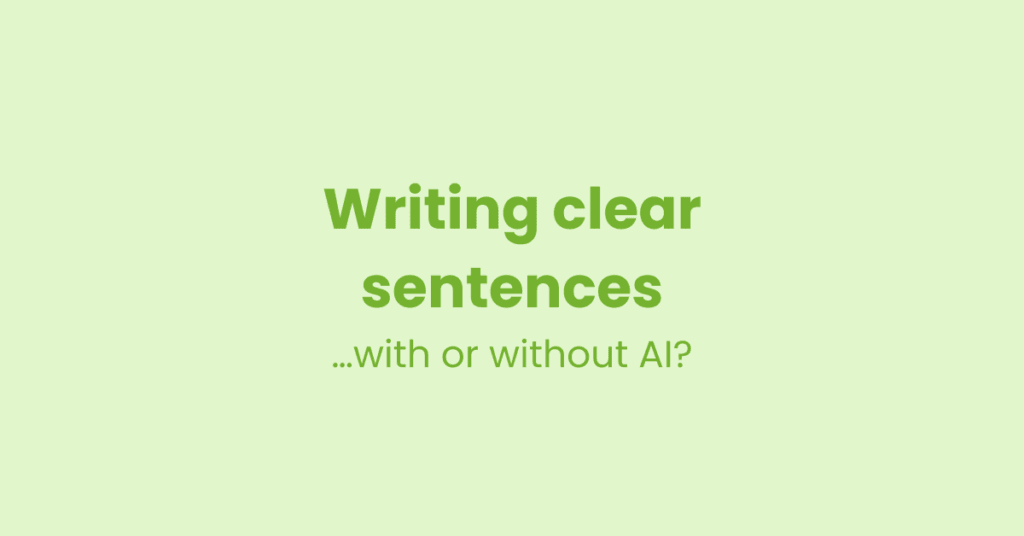
Ever find yourself staring at a sentence, wondering what on earth you were trying to say? You’re not the only one. I’ve written my fair share of incomprehensible sentences over the years.
It’s a normal part of the writing process. But it’s an issue that is easily overlooked if you don’t edit your texts properly.
Editing is essential.
Copy-editing results in clear academic texts that make it easier for people to understand your work, which is great for transparency and reproducibility. It also makes it more likely for others actually to read your paper – and who knows, maybe it’ll even improve your paper’s citation score.
But editing is a lot of work.
Wouldn’t it be great if you could speed that up, maybe even outsource it completely? AI tools like ChatGPT lend themselves perfectly to this.
These tools are great copy editors. They help you make tedious edits easier, such as finding the right words and fixing awkward phrasing. Personally, I use AI for pretty much every single thing I write, from emails to newsletters and website copy – it saves me tons of time.
But keep in mind that AI is just a tool. Nothing more than that. These large language models are in essence statistical models. They predict which words should go together based on patterns. That means they don’t actually understand what they write. This can cause them to alter the meaning of your text – something you don’t want when writing science!
Another thing to consider is that relying on AI for editing can slow your progress in the long run.
You won’t develop the quick, instinctive editing skills that come from doing the work yourself. If you edit your own texts, you’ll become better at recognising when and how a sentence can be improved. If you solely rely on AI, your brain won’t learn to do this.
It’s kind of like typing on a keyboard. You’ll write really fast, but it won’t teach you how to write something with pen and paper – which, to this day and age, is still an essential skill.
So, should you use AI?
In my experience, it’s all about striking the right balance. I use ChatGPT a lot, but I manually review its suggestions. I’ve learned to find what works best through practice. And that’s what I recommend for you too: practice your own editing skills, and practice using AI.
In my free email course Mastering Scientific Sentences (yes, it’s finally relaunched!🥳), I teach you how to edit your own sentences, and I also share specific AI prompts so you can use ChatGPT as your personal writing assistant.
It’s a free five-day course, and you’ll receive a lesson daily on how to:
- Spot how your sentences can be improved,
- Write clear, precise text, and
- Use AI tools like ChatGPT, without letting them take over.
By the end of the course, you’ll have a strong grasp of how to edit your academic writing efficiently—both with and without AI. What’s more, you’ll receive a cheat sheet with all the tricks and prompts you’ve learned.
Sounds good? Sign up below to get started!


(1) the copy-editing tricks you learned and
(2) AI prompts to quickly edit your own text.
